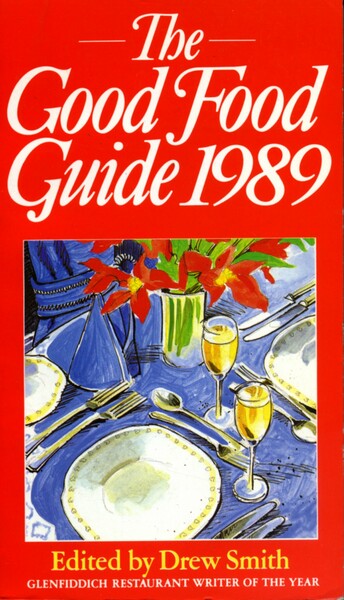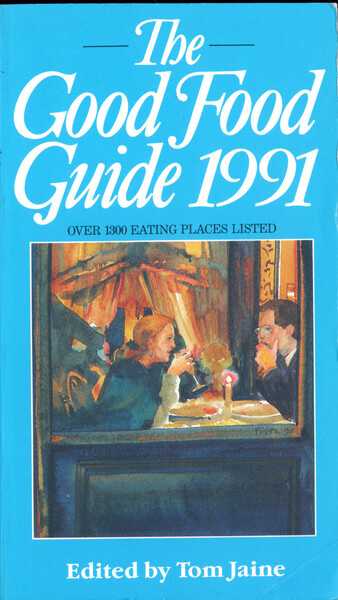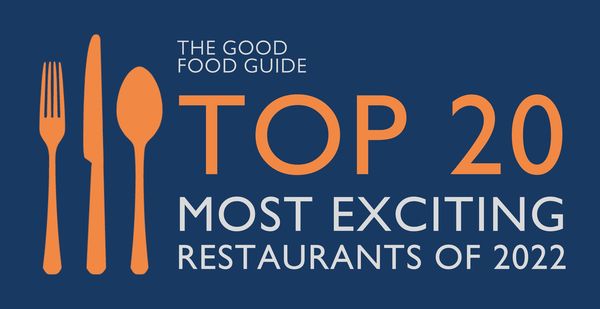Even many of the Very Good and Exceptional restaurants in our listings, places at the sharpest edge of culinary creativity, still manage to summon a repertoire of the tried-and-true if they are open on Sundays. A country pub that doesn't do Sunday roasts is a contradiction in unaccommodating terms, and those that are able to draw on the produce of local farms are in pole position to cater for one of the restaurant-goer's most enduring requirements.
A measure of the tense tradeoff between adventurous and comfort eating is that there have been phases in the Good Food Guide's history over the past thirty years or so when we didn't seem altogether interested in pointing people in the direction of this most satisfying of spreads. Editions of the Guide from the late 1980s were more or less silent on the best roast dinners matter, as though whoever the readers were, they were not the kind of people who rolled up to dine at one o'clock on a Sunday, expecting well-basted topside alongside potatoes crunchy enough to rattle in the dish, and pouring jugs of sleek brown gravy that was, for once, happy to be known as gravy, without the indefinite article, rather than a sauce or a reduction or a jus.

Nothing could have been further from the truth, of course. A roast lunch is what we fed ourselves with on the Sundays we didn't eat out, and was just as much treasured when it was encountered in restaurants as it was at the family board. The cry of 'let someone else do the washing-up' is never more heartfelt than when it lets us off the complex and extensive logistics in roasting a joint with all its accoutrements – trimmings, we tend to call them – at home.
As the last of nouvelle cuisine passed into history, the best Sunday roast started to reappear tentatively in our restaurant listings. An 'auberge' in Kent offered roast leg of Romney Marsh lamb in 1991, regularly lauded as 'the best I've ever eaten' in reader reports of the time. Even if raisins and peanuts were inveigled into it, it bore the unmistakable hallmark of splendid meat, superlatively rendered. Certain venues would have all but ground to a halt without the Sunday roast – the restaurant at Tate Britain in London is a prime example – but there was a gradual move towards celebrating it more fulsomely where it did earn a mention. In 2005, a pub in County Durham was commended for its 'heartily traditional roast duckling with leek and bacon pudding, prune and apricot compote and gravy from the roasting tin'. That last heavenly detail is the key. By 2017, we were celebrating roasted leg and braised shoulder of Perthshire hogget with whey-cooked potatoes and roast garlic in the western isles of Scotland. That's more like it.

The modern dining scene is such that roast fish, or indeed a vegetarian roast, now form part of the Sunday lunchtime repertoire, but there is still something plainly atavistic about the slow oven-cooking of joints of meat – legs of lamb fragrant with the green effulgence of the herb garden, crackled loins of pork with apple sauce to counterpose the salt, haunches of venison in fruity array, perhaps a fat goose when Christmas is coming. It speaks to the most fundamental requirement of eating well, the need to feel sated with savoury goodness. Not for nothing were the English given the appellation of 'rosbifs' by the fastidious French of the Napoleonic era. As long as there was something turning on a spit, often with a small boy to baste it, all was well among a people inclined to shrug off a northerly climate with roaring hedonism. It isn't entirely accidental that its substantial ballast is usually followed by the last thing the satiated appetite really needs – a hefty sponge pudding or crumble.
A roast dinner was once the reward for the back-breaking labour of the week. It stood service through the years of postwar rationing as a resource that could be stretched – slivered cold with veg, hashed in stew, ground up for mash-topped pies – through half the following week. It was the very essence of celebration, the ceremonial fatted calf or plumped-up turkey, that came to the table looking like the gastronomic version of royalty, guaranteed to elicit whoops of anticipatory relish, its carving an aspect of the respectful ritual accorded to it. The indelible measure of the specialness of the Sunday roast is that there is no point in cooking it when you are alone, and hardly much more point in warming up a supermarket ready-meal version in a foil tray that pretends to be a roasting dish but fools nobody. Get out to the best local pub there is, to the country hotel, even the city brasserie that is still prepared to take time over cooking meat that has already had plenty of time to mature.
If the annals of the Good Food Guide look a little scant when it comes to recommendations for the best Sunday roasts, or accounts of inspection meals that featured it, that is because there has always been a presumption that we already know what the Sunday menu is about, and the priority is to find out what a kitchen team can do when they really let themselves off the leash. That's where you come in. We don't undervalue the tradition by any means, but it has never been a primary focus. And yet the British Isles are replete with restaurants, inns and hotels that excel at feeding people one of the great internationally known features of the national cuisine. Tell us about them.
— Stuart Walton








